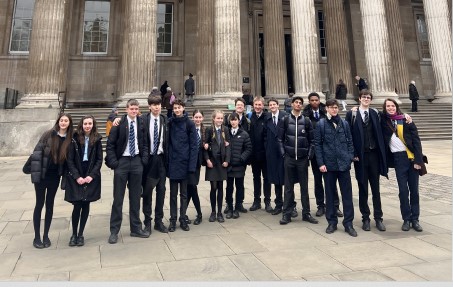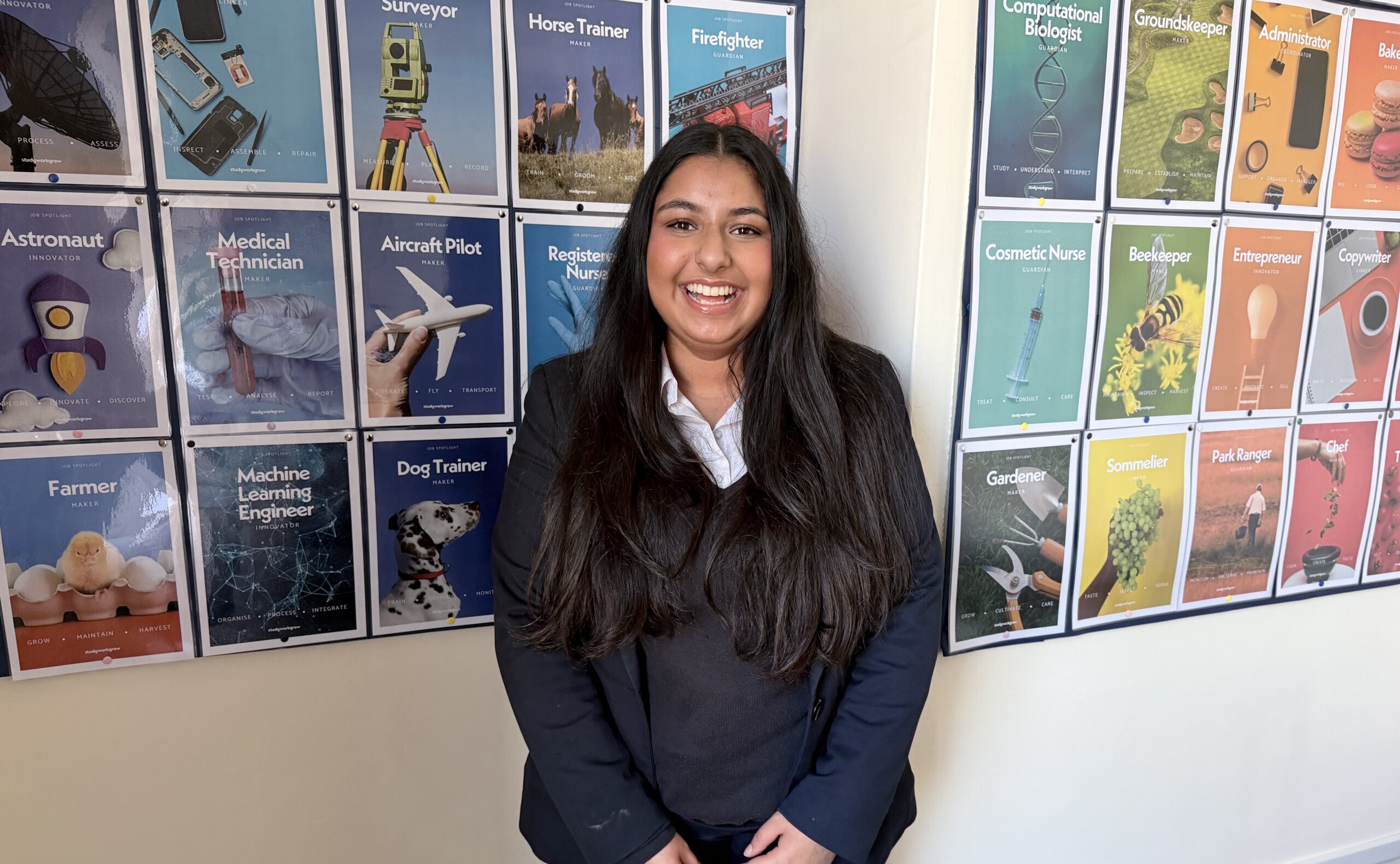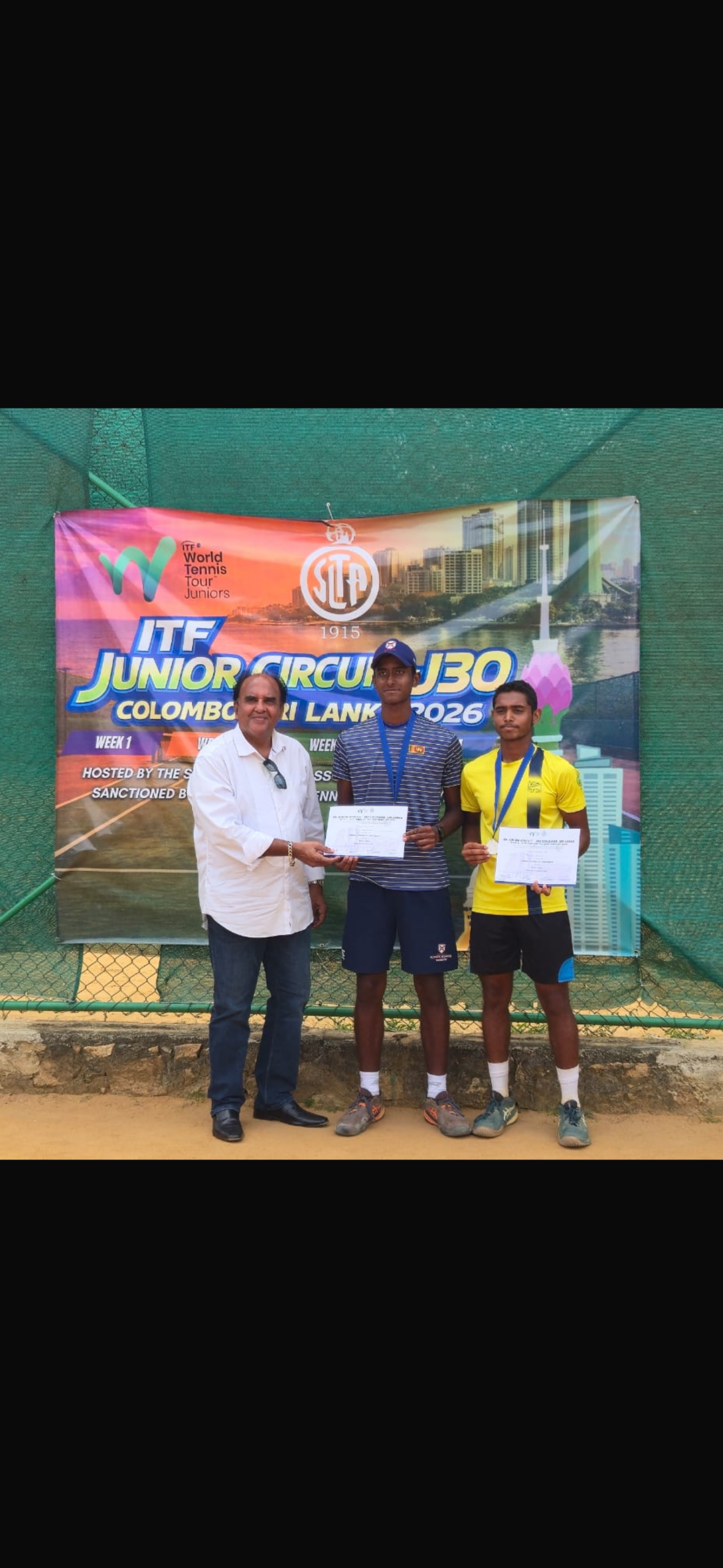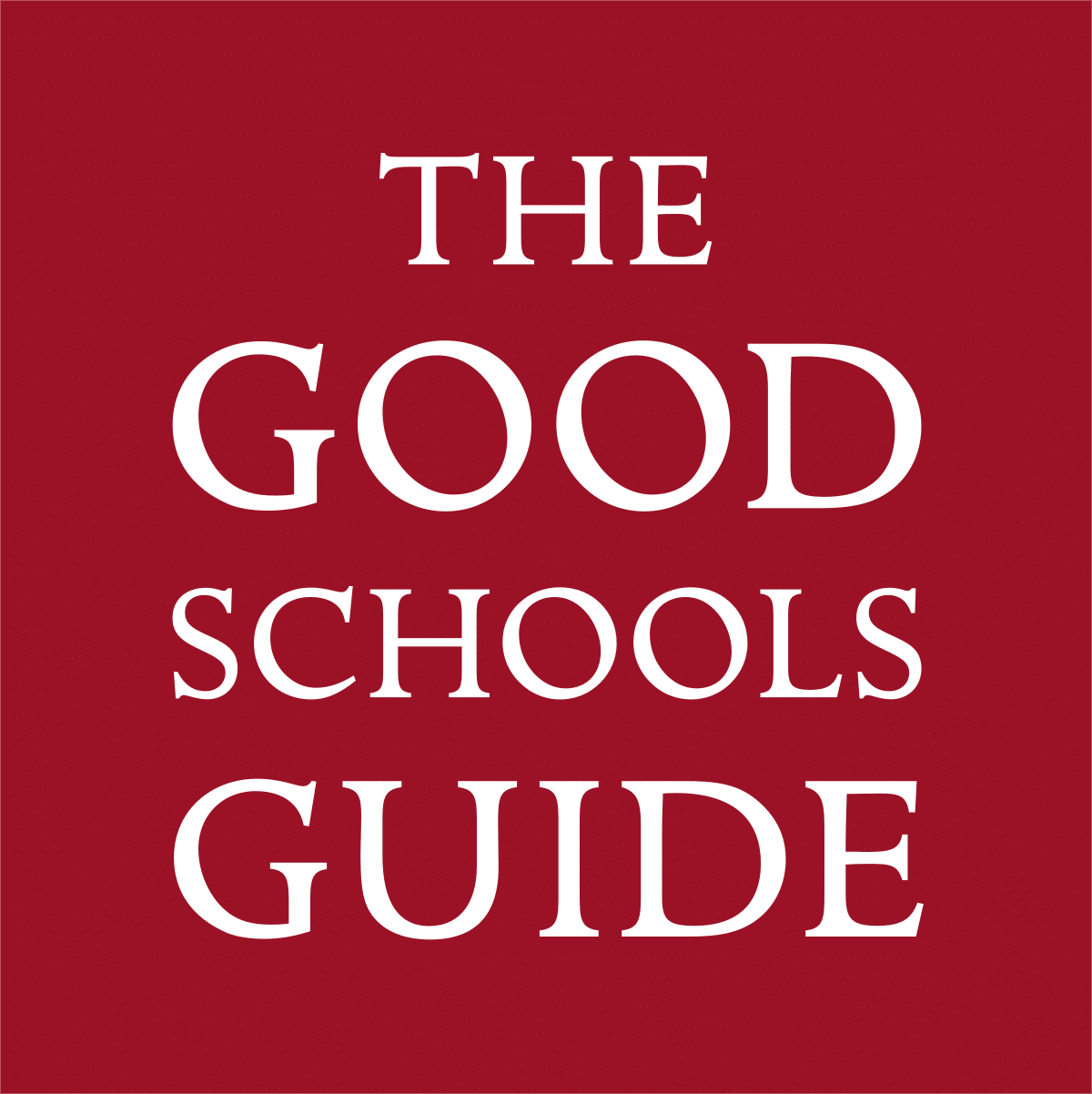
Pupils studying classics visited the British Museum which provided a fascinating insight into the theme of civilisation over barbarism, particularly through the metopes of the Parthenon and the Bassae Frieze. The metopes, depicting the battle between the Lapiths and Centaurs, vividly illustrate the struggle between order and chaos, a key motif in Greek art and thought. Similarly, the Bassae Frieze, with its dynamic scenes of Greeks fighting Amazons and centaurs, reinforces the ideal of civilisation triumphing over savagery. These artworks not only highlight the Greeks’ perception of themselves as the defenders of culture and order but also serve as enduring symbols of these ideals.
Later, pupils attended UCL’s adaptation of Aristophanes’ Frogs, a play rich in political satire and literary criticism. The performance brought to life the comedic yet thought-provoking themes of the original text, demonstrating the continued relevance of classical drama. Interestingly, Lewis Bentley OR made his stage debut in Frogs in 2019 before going on to direct the production the following year, showcasing the ongoing legacy of classical theatre and successful impact of King’s Classicists.
Related Posts
Congratulations to Simran (U6) who has secured a prestigious degree apprenticeship with BAE Systems, following a highly competitive "Women in Engineering" insight programme. As one of only two successful applicants, she navigated a rigorous selection process, including site visits and a high-stakes final interview. To prepare, Simran worked closely with Mrs Miles, using mock interviews [...]
Huge congratulations to Saha on an incredible four-week international tennis tour, where he demonstrated exactly what it means to be a world-class competitor. Facing off against some of the top U18 talent from across the globe, Saha opened Week 1 with a dominant 6-0, 6-1 victory over the 5th seed to reach the second [...]
Emilia and her horse, Bugatti, achieved a fantastic victory as overall County winners while representing King’s at the National Schools Equestrian Association (NSEA) Dressage Championship Qualifier. Following this impressive performance, Emilia will now represent both the school and Kent at the prestigious Championships at Hickstead in May. We wish her the very best of luck!














